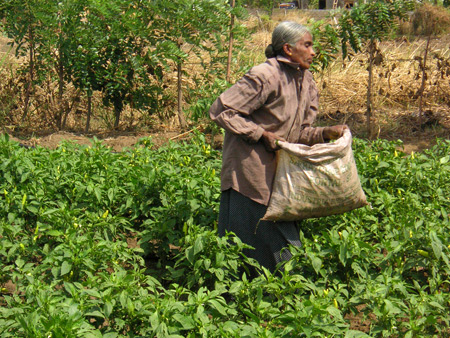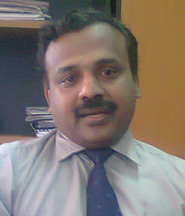Divi Neguma, a stimulus to rural economy
By Dhaneshi Yatawara
As a mid level developing country Sri Lanka is trying her best to
reduce the poverty numbers. "According to the world standards a person
earning less than a dollar per day is considered poor. Numerically there
is a segment in the society that fall in to that. But when compared to
other countries Sri Lanka is not a poor country," said Additional
Director General of the Department of Divi Neguma Development Bandula
Thilakasiri.
 Until 2009 Sri Lanka as a country faced problems as many fronts and
poverty level of the country was a major concern. By then poverty levels
were around 15. 'Yet the biggest problem was maintaining a secured
environment for the country. Safety of ours and our loved ones was the
biggest problem people were facing every day. This fear for life existed
from the poorest of the poor to the rich," Thilakasiri said. Until 2009 Sri Lanka as a country faced problems as many fronts and
poverty level of the country was a major concern. By then poverty levels
were around 15. 'Yet the biggest problem was maintaining a secured
environment for the country. Safety of ours and our loved ones was the
biggest problem people were facing every day. This fear for life existed
from the poorest of the poor to the rich," Thilakasiri said.
Eliminating this fear created a steady platform for the development
of the country. "All service sectors reached a level where the officials
had peace of mind to fully deliver their services. It is this
contribution that paved the path to initiate innovative ideas to address
key issues of the country," he said.
"It actually started in 2005 with President Mahinda Rajapaksa coming
to power. Yet, with the terrorist threats that prevailed until 2009
services could not be delivered in its maximum capacity," he said.
Though the officials as a team operated in the Southern parts of the
country, the humanitarian operation to save civilians from LTTE
terrorists was going on in the North and the East. "The Government had
no barriers to serve the people - whether they were from the North or
the South, it never mattered. The ultimate aim was to eleviate the
living standards of the less privileged families irrespective of their
location in the country," he said.
Thus 'Gama Neguma', 'Maga Neguma' national development drives reached
the rural masses. It was this initiative that properly focused on the
needs of an individual and the family. Using the already existed free
education and free health care facilities, a multi faceted support
system was created through Divi Neguma to upgrade the living standards
of the needy people of the country.
 |
|
Bandula Thilakasiri |
As around 80 percent of the country is formed by the rural masses
major part of these programs served the villages. "Throughout the recent
past many such rural community development plans were based on a welfare
system. Initially the Samurdhi and Divi Neguma programs had the same
structure. But the difference was that it meant only for the initial
stage. The strategy was to teach the people fishing instead of giving
fish. Following the preliminary support system the plan was facilitating
the people to develop an income generating livelihood," he said. "It may
not be incorrect to say that this was the biggest push given by a
Government to uplift the living standards, develop the infrastructure of
villages.
If the country need a sustainable development the infrastructure
facilities of the villages need to be improved essentially. The
government got directly involved in it," Thilakasiri said, explaining
that welfare mind-state would not help to eliminate poverty.
With all these efforts the Government was able to lower the poverty
level to 6 percent by about two years ago. "Today we see that the
poverty level is between 5 percent - 6percent. Within this year if the
planned programs would run as executed without any change, the poverty
level can be reduced even down to 5 percent," he said.
Today under the Divi Neguma Department, nearly 5,000,000 family units
are benefited. Registered under Samurdhi, there are 1,500,000 families
and the rest covers the needy less privileged families both in village
and the town.
Globally sustainable development is the key word in achieving
Millennium Development Goals or better known as MDGs. And by 2015 it is
going beyond the present MDGs. Sri Lanka is no exception. To be in par
with world run Sri Lanka development plan essentially had to look in to
sustainable development factors.
Therefore balancing the three pillars of the sustainable development
- i.e. environmental, social and economical aspects need to be catered.
Sustainable Development is the development that meets the needs of the
present without compromising the ability of future generations to meet
their own needs. Rather importing the western concepts of development
the government strategy formulated under the Mahinda Chinthana vision
for the future aims the village - the smallest unit of the country's
civil administration.
When a rapid development takes place in a country it can create a
wider gap between the privileged and the less privileged societies. This
is a common phenomena found in many countries with a strong focus on
development. "If this gap does not get filled the disparities between
the two societies are never going to be solved," Thilakasiri said.
The Divi Neguma livelihood development program and the 'Maga Neguma'
infrastructure development program launched under the directive of
President Mahinda Rajapaksa paved the way towards achieving the MDGs
developing in a sustainable way.
Initiated under the Economic Development Ministry the Divi Neguma
program has come under a separate unit - the Department of Divi Neguma
Development operated under the ministry.
During the past few years the contribution from regions outside the
Western Province has increased dramatically, marking a significant
change in its contribution to the national economy.
The regional economy compulsorily should be well connected to the
national economy. Many development initiatives the Government provide
various infrastructure for regional development to link the village
economy to the national economy.
The responsibility is to try and get the best benefit of the regional
development and link it with the national economy. Today the Divi Neguma
has become major contributor in developing the rural economy.
|

